 When John writes in the book of Revelation that at the opening of the "sixth seal... the sun became black as sackcloth" (6:12), was he witnessing some future solar eclipse that heralded the end of the world? Or when Jesus spoke about the sun being "darkened" before his second coming (cf. Mark 13:24), was he calling us to watch the skies for signs like an eclipse?
When John writes in the book of Revelation that at the opening of the "sixth seal... the sun became black as sackcloth" (6:12), was he witnessing some future solar eclipse that heralded the end of the world? Or when Jesus spoke about the sun being "darkened" before his second coming (cf. Mark 13:24), was he calling us to watch the skies for signs like an eclipse?
- Featured Posts
- All Posts

Pinned Post
Sept 12, 2021
Give me all the Bacon & Eggs you Have
Vivamus gravida luctus feugiat. Sed sed dolor augue. Curabitur leo ex, vehicula vel orci vitae, elementum placerat nisi. Suspendisse vel urna vel neque tempus Vivamus gravida luctus feugiat. Sed sed dolor augue. Curabitur leo ex, vehicula vel orci vitae, elementum placerat nisi. Suspendisse vel urn…

How an Eclipse Can Make You a Better Bible Reader
When John writes in the book of Revelation that at the opening of the "sixth seal... the sun became black as sackcloth" (6:12), was he witnessing some future solar eclipse that heralded the end of the world? Or when Jesus spoke about the sun being "darkened" before his second coming (cf. Mark 13:24), was he calling us to watch the skies for signs like an eclipse?
Keep Reading
Ancient Easter Encouragements
As Ephesians 4:11-12 remind us, Christ has given to his church “the shepherds and teachers, to equip the saints for the work of ministry, for building up the body of Christ”. This has always been true, in each century of the Church's existence. We pray you're encouraged by three of these teachers, one from the 2nd century, and two from the 4th century, as they proclaim the power, purpose, hope, and wonder of Jesus' resurrection.
Keep Reading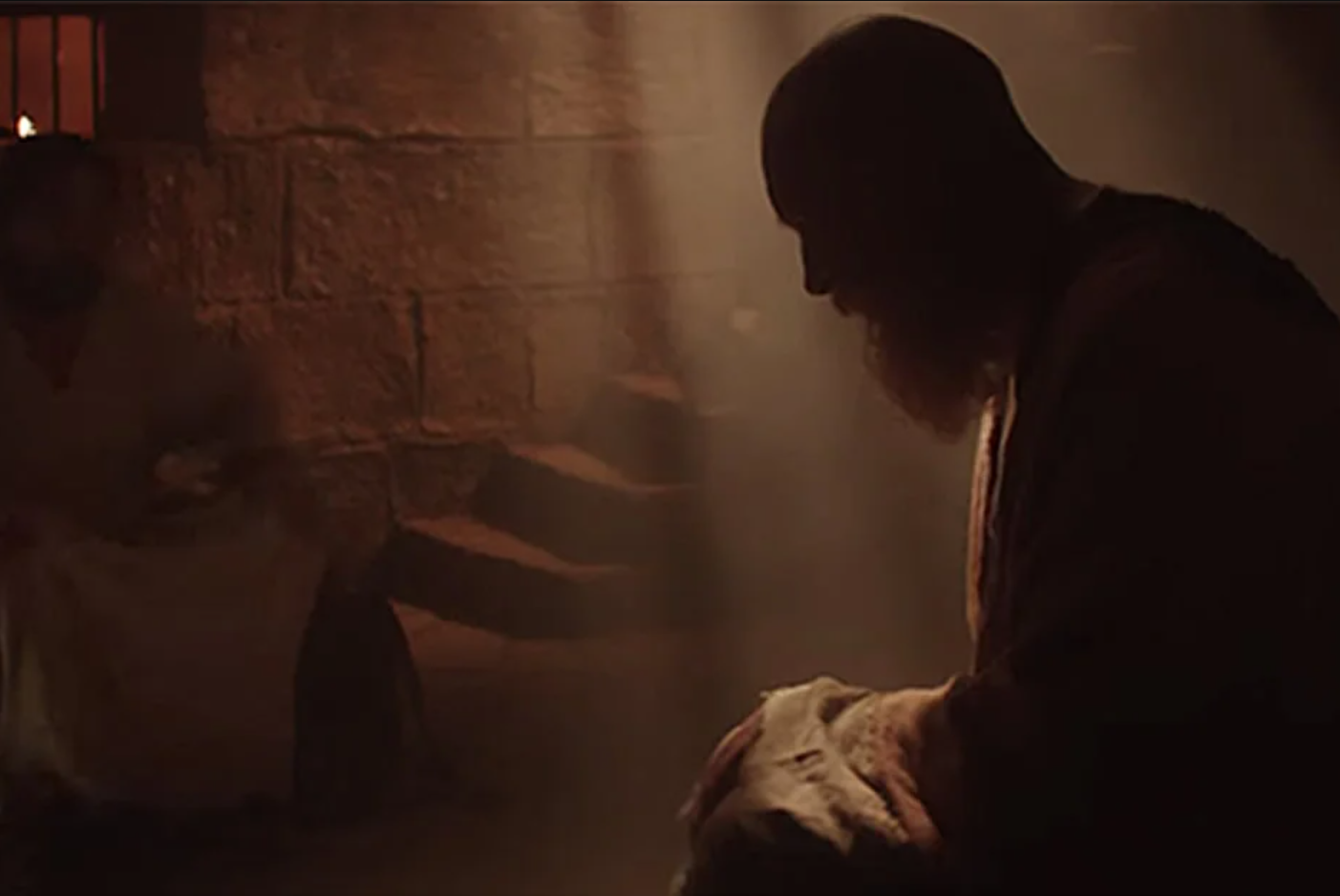
The Surprising Way God Answered Paul's Prayer Requests
Paul makes two prayer requests in Romans 15:30-32. First, he asks these Christians in Rome to pray that he would "be delivered from the unbelievers in Judea" during his upcoming trip to Jerusalem. Second... that his "service for Jerusalem may be acceptable to the saints".
Keep Reading
Three Not-So-Good Pitfalls Regarding "Good Works"
Though positive examples abound throughout church history, over the centuries, Christians have also (and often) struggled with the biblical concept of "good works"... To understand these not-so-good pitfalls regarding "good works"... Consider three pitfalls related to Paul's teaching in Ephesians
Keep Reading
10 Helpful Verses on Giving Thanks
While Thanksgiving may be (for most people--including most of us) an occasion for traveling, gathering, and eating, for God's people, the season is also a great opportunity for worship and as a reminder of the grateful posture we should have all year long.
Keep Reading
Is Israel Israel?
As horrific and heartbreaking images flow from the Middle East, images of terrorism, war, and the profound human suffering of both Israelis and Palestinians, many within the Church have rightly been driven to prayer. But such difficult times also generate conversations among believers about the people and places involved in today's news headlines, and specifically how all of this is connected to God's word and work.
Keep Reading
Quotes on Lordship, Discipleship, & Partnership
Some key quotes from Message #1 in our "The Work of Ministry" series, along with some helpful quotes from others on this foundational topic. We pray these are an encouragement to you!
Keep Reading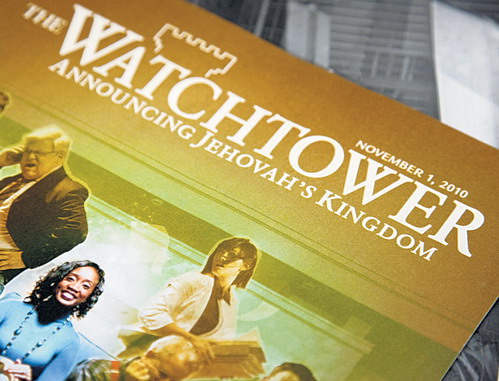
Letter to a Jehovah's Witness Neighbor
During the pandemic, I noticed that local Jehovah's Witnesses had begun sending outreach letters to local residents in lieu of door-to-door or public book stalls. Post-pandemic, this practice has continued. My household has received a number of these letters over the past three years. Maybe you have as well. A recent letter from a Witness neighbor gave me the chance to put down and send some thoughts
Keep Reading
Solomon and the Toxic Irrationality of Sin & Suffering
The story in 1 Kings 3:16-28 of Solomon and the two mothers (in fact, "two prostitutes") has always bothered me. The reaction of the second mother in verse 26, her willingness to put the child to death and accept half his corpse, just seemed unbelievable.
Keep Reading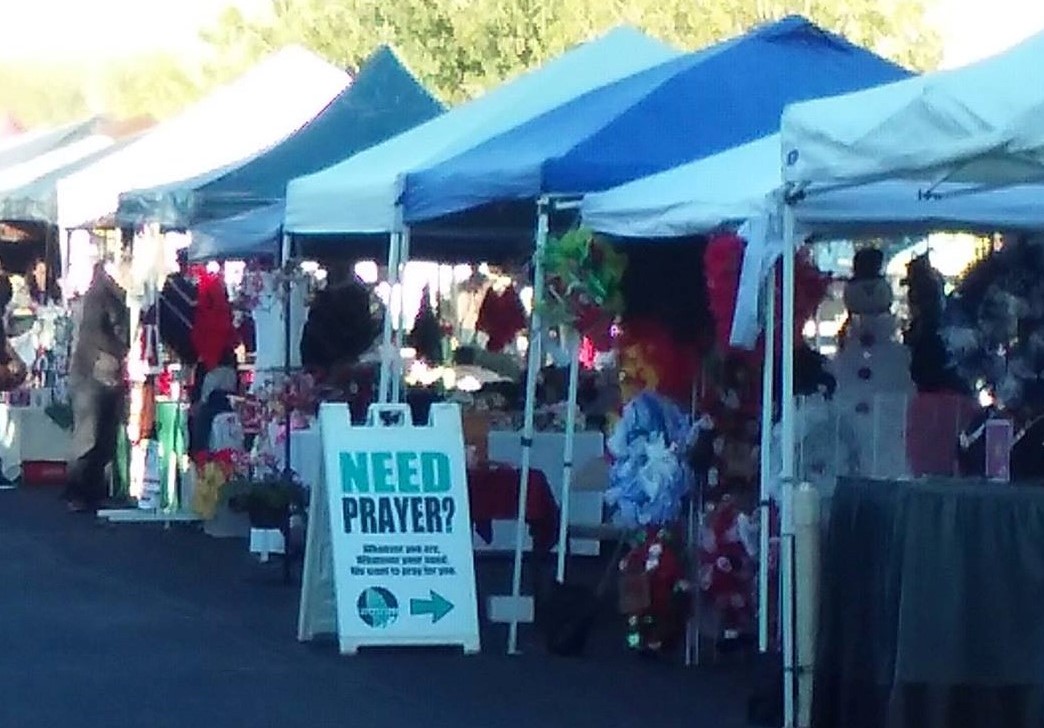
Highlights from our PrayWay Prayer Booth (2023)
So pleased to report that we had a wonderful time again hosting our PrayWay Booth at the Buckeye Air Fair. A huge thanks to all those who served, and praise and thanks to God for the opportunities he provided for us. In addition to handing out tracts, Bibles, and cards about our upcoming “Community Sunday”, here are some of the highlights in terms of those God brought our way
Keep Reading
Why Your Faith in God is Not Enough
Love alerts us to what is dangerous. And it's dangerous to believe that our belief has placed us on the inside with God, when in reality, we are on the outside, ignoring the only "door" (John 10:9) that can give us access into that wonderful place, forever.
Keep Reading
A Prayer for Election Day
"Heavenly Father, as our nations think and talks about election day, we come to you as a pilgrim people; as "sojourners and exiles" (I Peter 2:11) in a world that is "passing away along with its desires" (I John 2:17)"
Keep Reading
Why Halloween is the Worst Holiday
No, this is not a tirade. No, I will not be pointing a finger of condemnation at those who celebrate Halloween in one way or another. I simply want to offer some thoughts for you to chew on. Almost every year I talk with my children (one in particular) about why we don't celebrate Halloween. Our most recent conversation on this subject led me to write some of these thoughts down. Maybe they're helpful to you. Maybe they're not. I'll let you decide.
Keep Reading
Revisiting Eden
“I think many who are unfamiliar with the Bible might find it surprising that only three chapters into the first book of the Old Testament, one of the characters is a talking snake. If you were helping a person like this make sense of the story we find in Genesis 3 (a person whose only experience with talking snakes was from a children's storybook or a Disney movie), how would you explain this unusual character?"
Keep Reading
The Hardest Chapter in the Bible
Some thoughts on the challenges of interpreting Revelation 20.
Keep Reading
Can a Genuine Christian Walk Away from the Faith?
"Drew, I understand that you believe Scripture teaches a true believer can fall away; that a person who is born again, a new creature in Christ, and a child of God, born of imperishable seed, can somehow reverse or lose all that. But I believe that idea is soundly refuted by God's word."
Keep Reading
Does “Rejoice Always” Mean the Absence of Sadness?
When Paul wrote “rejoice always” to the Thessalonian believers in 5:16 of his first letter to that young church, was this short command also meant to communicate the idea that there's no place for grief or discouragement or disappointment in the life of the believer? I don't believe so. Here's why.
Keep Reading
10 Ways to Find Rest at the Cross
In times of mental, emotional, relational, and spiritual exhaustion, we can, in light of God's word, find rest at the cross. Here are just some of the ideas revealed by Scripture about the cross of Jesus, ideas that should inspire comfort, peace, and encouragement. Consider how you might worship, give thanks, and pray in light of these ten truths...
Keep Reading
Re: Abortion
As God graciously works among us to transform our minds and hearts (to renew us in light of the truth, that we would love what is good), I pray as you ponder them, these brief thoughts on the difficult topic of abortion would do that very thing:
Keep Reading
How His Resurrection Reframes Your Reality
Jesus, who was crucified on a Friday two-thousand years ago, amazingly, rose again, rose to life on the following Sunday. This radical reality should, above everything else, reframe your reality. But has it? Does it? Strangely, many people today who accept Christ's resurrection as an historical reality don't seem to actually live in light of that reality.
Keep Reading
Put Your Armor On
What is the Apostle describing in Ephesians 6:10-17? He's describing life on the battlefield. Conflict. Forces of Evil. Putting on armor. This is the language of warfare, of a battle taking place in which the Ephesian Christians are involved. And if we believe their faith is our faith, if we believe this was and is God's word to his people, then we are on that same battlefield.
Keep Reading
Is Romans 7:14-25 Describing a Christian's Struggle with Sin?
Will a genuine follower of Christ, one who has truly been “born again”, a person genuinely filled with the Holy Spirit, struggle with sin? The answer from the New Testament is an emphatic “yes”. And there are many passages that speak to this reality of the believer's struggle with sin. But though many want to offer these verses as evidence and use their language, Romans 7:14-25 isn't one of those passages.
Keep Reading
Why That Homeless Man Probably Isn't Jesus
Maybe you've heard this identification before: “Yes, when we were ministering to that homeless gentleman in front of the old firehouse, I knew we were ministering to Jesus himself, just like the Bible says.” Of course the individual in question could be any number of people in need: an incarcerated relative, a child in 'the system', a dying neighbor. But does the New Testament really teach that when we bless such people, we are actually blessing Jesus in disguise?
Keep Reading
Visit Fantasyland, But Don't Stay
...When visiting the different, themed sections of Disneyland, Fantasyland is not typically high on my priority list. But even those who enjoy the Tea Cup ride or King Arthur's carousel know there's much more to the Disneyland experience. Think about it: who would pay full price for admission, but then simply cycle through just the ten or eleven rides in Fantasyland? No one. But God's word warns us that, too often, we're the kind of people who do something very similar when it comes to everyday life: we regularly choose to pitch our tent in a land of fantasy rather than reality.
Keep Reading
7 'Christmas Story' Fallacies
The fallacies I have in mind are ones that have been circulated over the centuries by what some call popular or folk Christianity. Undoubtedly, these kinds of 'Christian' beliefs can be found in all sorts of categories, not just the one labeled 'Christmas'. But these Christmas fallacies are some of the best known, since they are promoted annually through things like nativity scenes/sets, television and movies, and even Christmas carols.
Keep Reading
But What About Forgiving Myself? (Part 2)
In light of the moral universe revealed by the Scriptures, I suggested modern ideas regarding 'self-forgiveness' make very little sense. But this doesn't mean there are not areas of overlap between biblical concerns and modern, therapeutic concerns. Care for hurting individuals is the common goal. So where are the points of connection, and how does God's word address modern concerns?
Keep Reading
But What About Forgiving Myself?
Have you ever heard someone say, “I just can't forgive myself”? If you're a follower of Jesus, than this struggle should stir our hearts to help. But as I think many would agree, we must help in light of God's word. Here's the challenge: while it's a well-known concept in both counseling contexts and popular culture, attentive readers of Scripture know that 'self-forgiveness' is not an explicit concept in the Bible.
Keep Reading
Christians and Yom Kippur
While Christians are not called to keep the day, Yom Kippur can serve as a powerful reminder that this yearly ritual was only a picture of the perfect sacrifice God would provide and did provide through Jesus (cf. Isaiah 53:10).
Keep Reading
3 Spiritual Lessons from 9/11
As we mark the twentieth anniversary of the 9/11 attacks, many people will undoubtedly be reflecting on the significance of what happened two decades ago and how it should shape our outlook today. While historians, security analysts, and those who focus on foreign affairs have had and will have a lot to discuss, it's just as important to reflect on the spiritual significance of those tragic events.
Keep Reading
The Dangers of a 'Headlines' Faith
Current events and culture wars can easily push faith concerns to the side. But equally dangerous is when the media's “what matters most” begins to shape our faith instead of sidelining it.
Keep Reading
Is Genesis 3:15 Really Talking about Jesus?
It's often called the 'protoevangelium'. That's a Greek word that simply means “first gospel”. What is this 'first gospel'? It's an interpretation of Genesis 3:15 that argues this verse is ultimately speaking of Jesus and his victory over death and Satan. But is that actually what the verse is saying?
Keep Reading
Our Relaunch Prayer Guide
Pray with us in the coming weeks in light of our relaunch on October 3! Each week includes a biblical theme and related Scriptures around which we hope you will pray.
Keep Reading
10 Reasons Why, Though Awful, the Idea of Hell is Not Absurd
When we consider what the Bible tells us about hell, it is undoubtedly awful. But is it absurd? Is the idea of hell unreasonable? Some people believe so. But hell is clearly taught in Scripture. In fact, Jesus spoke about it more than anyone else. So what can we do? What should we do with this Christian concept of hell in a 'hell no' society?
Keep Reading
Resurrection Reassurance
Are you experiencing the “much more” of Christ's resurrected life? Specifically, are you reassured by His resurrection that God's purpose, God's plan for your life is alive and well because Jesus is alive and well?
Keep Reading
She "Left Her Water Jar"
Based on what he included in his account, it seems reasonable to conclude that John provided this simple note about the woman leaving her water jar because that minuscule detail said so much about the massive work God had done (and was doing) in her heart. In the same way, I believe God has seen fit to preserve this detail for our encouragement
Keep Reading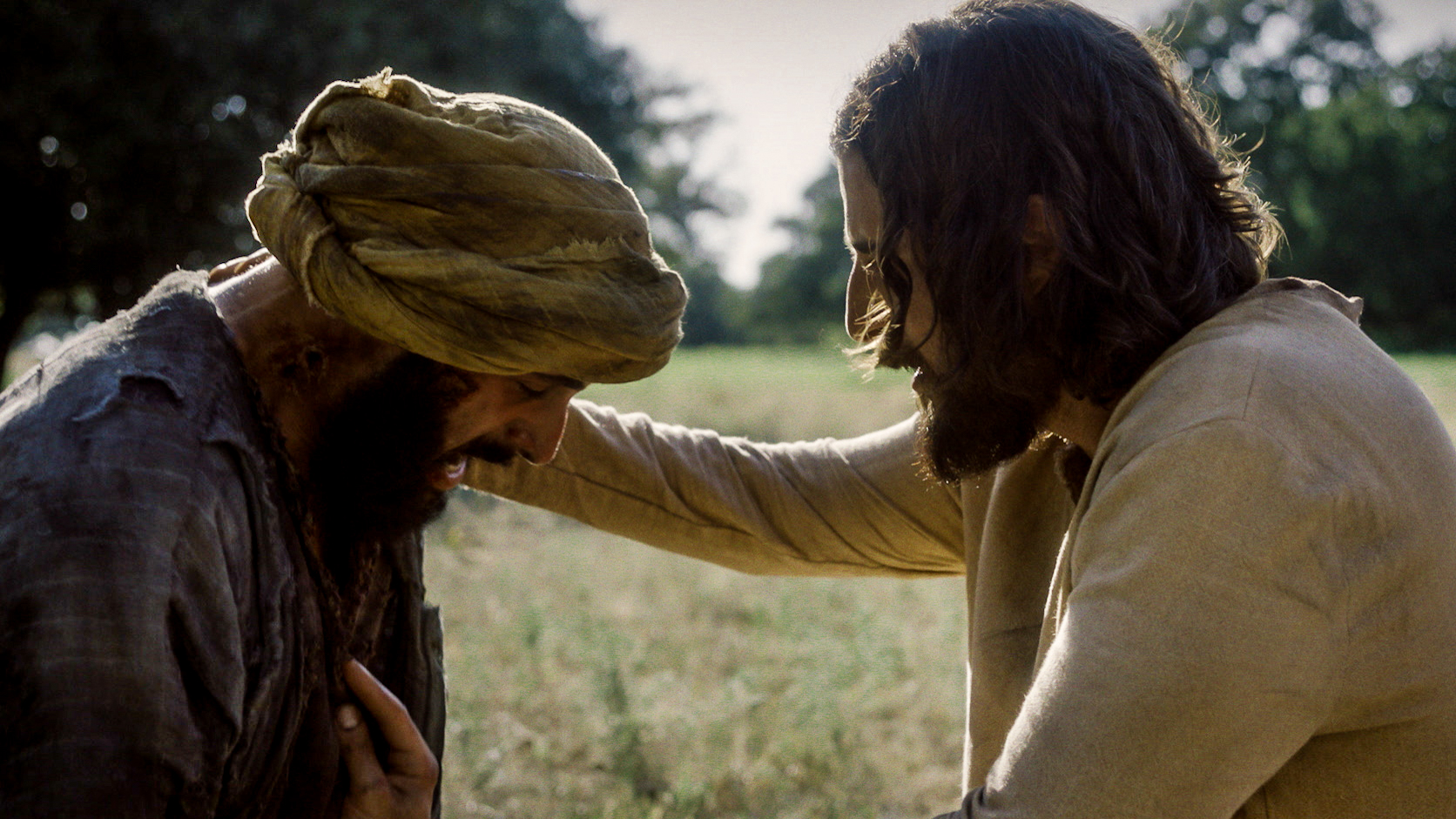
Some Reasons You Should Watch “The Chosen” (And Some Suggestions When You Do)
While a show like this may be a good introduction to Jesus for someone who knows very little about him, why should followers of Christ watch a show that unabashedly goes beyond what Scripture itself reveals about the earthly ministry of Jesus and those who followed him? Let me offer a few reasons.
Keep Reading
How the Apostles Might Encourage Us to Use a Church Directory
If [ancient church] directories did exist, and were made available to every believer in each local church, what might the apostles say in their letters about this kind of resource? As those who have just received a newly updated copy of our own church directory, this question is certainly relevant.
Keep Reading
Who is the Object of Your Faith?
The 'faith emphasis' (or focus) of the New Testament doesn't direct us away from the God of the Old Testament. It fulfills it. But in doing so, it confirms that Jesus must be God, for only God is worthy of being the object of our saving and sanctifying faith.
Keep Reading
Our Advent Devotional
I'm excited to begin an Advent journey with you using Pastor John Piper's book, "Joy to the World: Daily Readings for Advent"
Keep Reading
Now Thank We All Our God
How could Thanksgiving be the same in a year when almost everything else has been 'out of sorts'? Sadly, it won't be. But while many will understandably miss the familiar holiday habits and hugs, the troubling issues of 2020 cannot change the word that God has issued about giving thanks: "...give thanks in all circumstances; for this is the will of God in Christ Jesus for you." (I Thessalonians 5:18)
Keep Reading
Seven Proverbs-Inspired Prayers for Our Leaders
Did you know Proverbs includes around fifty verses that mention (or are part of a passage that mentions) either a “king”, “ruler”, “prince”, or “noble”, or that speak to a royal context or function? If we desire healthy and effective leadership in our lives, prayer is one powerful way to genuinely make a difference. To that end, here are seven Proverbs-inspired prayers for our leaders.
Keep Reading
Take Your Temperature
Every Christian is a disciple of Jesus. But that doesn't necessarily mean every Christian is walking in spiritual healthiness as a disciple... In light of [the reality of spiritual] unhealthiness, it is vitally important for every follower of Christ to take his or her spiritual 'temperature'.
Keep Reading
Who are You Voting for in November?
Contrary to what you might be hearing (even from some respected, Christian leaders), who you vote for in the upcoming presidential election is not a biblical mark of genuine, saving faith, nor is it inherently an unrighteous act if you vote for the so-called 'wrong' candidate (whoever that is in your context).
Keep Reading
The Coronavirus Corrective
When we hold on firmly to the biblical definition of church, public health measures may force us to revise our plans, but they simply cannot restrict the church from being the church. Throughout history, and throughout the world, even today, the Church has always been flexible enough to adjust the form of its life together, without veering from the function of its life together.
Keep Reading
That Time Jesus Referred to the Foreign Woman as a “Dog”
When we read often-neglected stories like this, we're reminded that it's very easy to slip into a mentality of, “Jesus? Oh yeah, I know Jesus. I know all about Jesus.” But God is so good to unsettle us in terms of the often unsettling truth about the real Jesus.
Keep Reading
Hamilton's Little-Known Ending
Faithful fans of Hamilton will certainly know how the play ends. But few people know how the final hours of Alexander Hamilton's life actually 'played out'... yes, “in the room where it happened”.
Keep Reading
What God Says About Diversity
Having just finished another study in the deeply meaningful, but often misunderstood, book of the Revelation, I couldn't help but reflect on how John's vision in chapter 7 speaks to our current, culture-wide conversation about race and inequality.
Keep Reading
Fighting for Fellowship
Social influences, insecurities, selfishness, and many other factors can keep us from the faith-shaped relationships we read about in Scripture. Currently, it is the unexpected reality of a global pandemic that has not only distanced us socially, but also tempted many of us to fizzle rather than fight when it comes to fellowship. But why?
Keep Reading
100.4.15
From now until the end of the month, you can, amazingly, provide over 100 meals for a person in need in our community for just $15! We are pleased to partner with All Faith Community Services in Buckeye to bless so many who are struggling in light of the current crisis.
Keep Reading
Where is God in the Best and Worst of Times?
Behind that question is one that's been asked for millennia. It's often referred to as 'the problem of evil'. Why does God's plan include the rescue of some and not others, the severe suffering of some and not others? Frankly, there are no easy answers to such questions. But the assumptions behind our questions can be helpful. Your piece assumed the value of all human life. You touched on the importance of gratitude, and the unwelcomeness of pain and suffering. In short, you, like most, assumed an 'ought'.
Keep Reading
Easter Every Day
Resurrection apart from death is not resurrection. It is reconfiguration. It is reinterpretation. It is renovation and remodeling. But it isn't resurrection.
Keep Reading
7 Bible Verses to Consider in Light of COVID-19
Many people today are looking for answers. Pandemics, like most crises, have a way of driving us in that direction. But many seem hungry for more than just health advice, social guidelines, and up-to-date statistics... I would offer up that these people are looking for what we might call spiritual answers. That collection of ancient scriptures we call the Bible is (and for thousands of years has been) widely recognized as a place to find spiritual answers.
Keep Reading
Salvation Thru Sickness, Not From It
At a time when sickness is on the minds of so many, the 'benefits package' offered by the often-termed 'prosperity gospel' might seem especially appealing. What is the prosperity gospel? It's the belief (popular in many Charismatic and Pentecostal circles) that Jesus came, not simply to save you from sin and self, but from disease and debt as well... But is this really what the Scriptures teach? Is this prosperity gospel the genuine gospel of the New Testament?
Keep Reading
How Great Pain Can Point Us to a Great God
For many, painful circumstances drive us toward one of three, general stress responses: fight, flight, or freeze...But what if we added “faith” to that list? It was C.S. Lewis...who said: “Pain insists upon being attended to. God whispers to us in our pleasures, speaks in our consciences, but shouts in our pains. It is his megaphone to rouse a deaf world.”
Keep Reading
You May Be Wrong About the Lord's Prayer
How exactly should we use the Lord's Prayer? In some traditions, consistent repetition of the exact words of this prayer seems to be done in a mechanical way, as if the prayer were some kind of 'magical mantra'. Others have emphasized the idea that this prayer is not a mantra, but a model, intended to shape the broad contours of all our prayers. So which is it?
Keep Reading
Practicing Digital Disciplines: Four Areas to Keep in Mind
Like the operator of a nuclear power station, effectively handling the power of your digital device requires careful consideration and consistent discipline. Without this mindset, experiencing a relational or emotional or mental or spiritual 'meltdown' is a very real possibility.
Keep Reading
From Valentine's Day to Good Friday
While colorful hearts and cartoonish cupids are common images around Valentine's Day, the cross was the image the Apostle Paul wanted his reader to be informed and inspired by above all others. As Paul wrote in the opening verses of Ephesians 5, God has called us to “walk in love, as Christ loved us and gave himself up for us”
Keep Reading
4 Ways Lust Hurts You and Yours
So many people today believe it's perfectly normal to make room in your life for lust. They think, “As long as I'm not hurting anyone, what's the big deal... ?” Such people might be surprised to learn there are many ways sexual lust harms you and those around you.
Keep Reading
On Election Day, Every Christian Should Be an Independent
...I'd like to do more than just encourage you to vote. If you are a Christian, I'd like to encourage you to vote as an independent. No, I'm not talking about your party affiliation. But I am thinking about the idea of party affiliation.
Keep Reading
Our Need for Neediness
Needy. Do any of us want to be needy? Do any of us want to be thought of as needy? If you are needy in our society, does it, from the culture's perspective, make you a hero or a 'zero'?
Keep Reading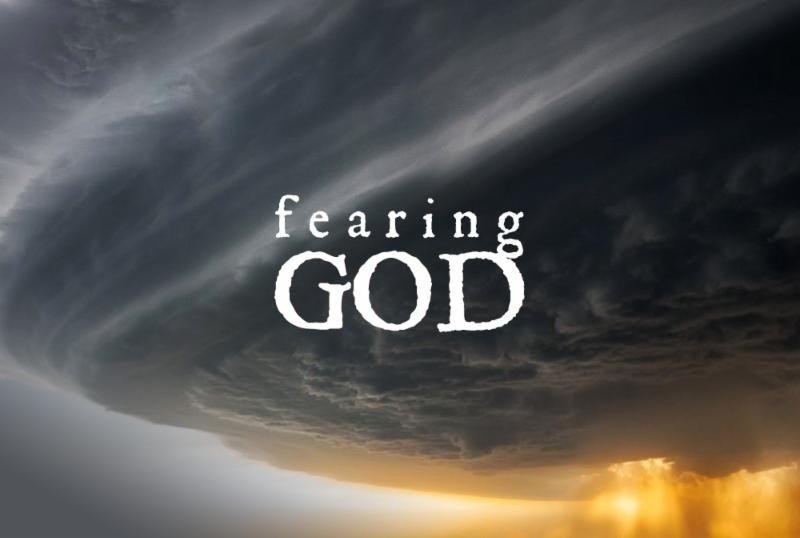
The Forgotten Fundamental: Fearing God
Quick question: What's your favorite praise song or hymn about fearing God? Struggling to come up with examples? You wouldn't be alone. Compared to songs about loving God or worshiping God, songs about fearing God are few and far between. And there's a good chance that poverty is also reflected in our prayers and preaching as well.
Keep Reading
How Scientists Can Make You a Better Bible Reader!
When a biblical passage appears to be at odds with the current scientific consensus, the problem may be that we simply have further to go in understanding the true meaning of the text...But in other cases...the issue is not the limitations of our biblical knowledge, but rather, the limitations of scientific knowledge.
Keep Reading
"Jesus and Me" Christianity
From the outset, God designed men and women to be social beings. If community was vital in the perfect world before sin bent and twisted us, and our surroundings, how much more vital is it now that we live in a fallen world!
Keep Reading
Hell and the Wrath of God
Even though we struggle with ideas of judgment and hell, they are important expressions of God's own nature.
Keep Reading
Why the Cross? (Part Four)
Christ died to save a great diversity of peoples. Sin is no respecter of cultures. All peoples have sinned. Every race and culture needs to be reconciled to God. As the disease of sin is global, so the remedy is global. Jesus saw the agony of the cross coming and spoke boldly about the scope of his purpose: “I, when I am lifted up from the earth, will draw all people to myself” (John 12:32)
Keep Reading
Why the Cross? (Part One)
Redemption is not good news if it only liberates us from bondage but doesn’t bring us to God. Adoption is not good news if it only puts us in the Father’s family but not in his arms...This is the greatest thing Christ died for. “Christ also suffered once for sins, the righteous for the unrighteous, that he might bring us to God” (1 Peter 3:18).
Keep Reading
Why the Cross? (Part Two)
“Imitation is not salvation. But salvation brings imitation. Christ is not given to us first as model, but as Savior. In the experience of the believer, first comes the pardon of Christ, then the pattern of Christ. In the experience of Christ himself, they happen together: The same suffering that pardons our sins provides our pattern of love."
Keep Reading
Why the Cross? (Part Three)
There is no salvation by balancing the records. There is only salvation by canceling records. The record of our bad deeds (including our defective good deeds), along with the just penalties that each deserves, must be blotted out
Keep Reading
On Sinning Deliberately
"Our message this past Sunday from I John highlighted language the Apostle John used in 3:4-9 to describe those not 'born of God'; those who have neither 'seen him [nor] know him'. John described them as those who make 'a practice of sinning' (vs. 4, 8, 9)... While not addressing I John 3, Pastor John Piper's comments on Hebrews 10 can help us with this concept of making “a practice of sinning”, or as the author of Hebrews puts it, 'sinning deliberately'. Piper writes..."
Keep Reading
Super Bowls Ads, MLK, and True Greatness
Funny how God works. He can even use the misguided pairing of Dodge and Dr. King, on a Super Bowl Sunday, to point us back to true greatness and the One who makes it possible.
Keep Reading
Standing for the Unborn
Abortion is an assault on the image, character, grace, gospel, and glory of God. For the Christian to see it as anything less than that is to reject a biblical view of God’s gospel and God’s glory...Every child in the womb is a masterpiece shaped by the master craftsman.
Keep Reading
What a Dinosaur Can Teach Us about Real Love
I Corinthians 13:4-7 is not necessarily a definition of love. Rather, it is a description of love, a description that challenges anyone who simply says “I'm loving,” or “I love you”. It tests the talk in light of the walk. And one of the ways it describes love is, "Love bears all things". But what exactly does that mean, and how can a dinosaur help us understand God's word here?
Keep Reading
The Other "In Christ Alone"
For many, the phrase "in Christ alone" reminds them of the beautiful song by Stuart Townend and Keith Getty (from 2002)(opening line: "In Christ alone, my hope is found; He is my light, my strength, my song.). But there is an older song by the same name (from 1991), one that many may still remember.
Keep Reading
Walking by Saving Faith
What is striking about Paul's argument in Romans 4 is not simply the idea of being justified (right with God as one declared innocent) by faith, but that Paul goes on to describe the hope-inspiring, endurance-producing nature of this saving faith; the fact we can “grow strong” (4:20) in faith, no matter what is happening to us or around us.
Keep Reading
Leaving Las Vegas
Each and every day, all of us have been and will be leaving Las Vegas. We will leave the news coverage behind and head back into our daily routines and everyday commitments. But how will this tragedy change us? Beyond the grief and confusion and anger, what are we taking away from this awful event? What should we take away?
Keep Reading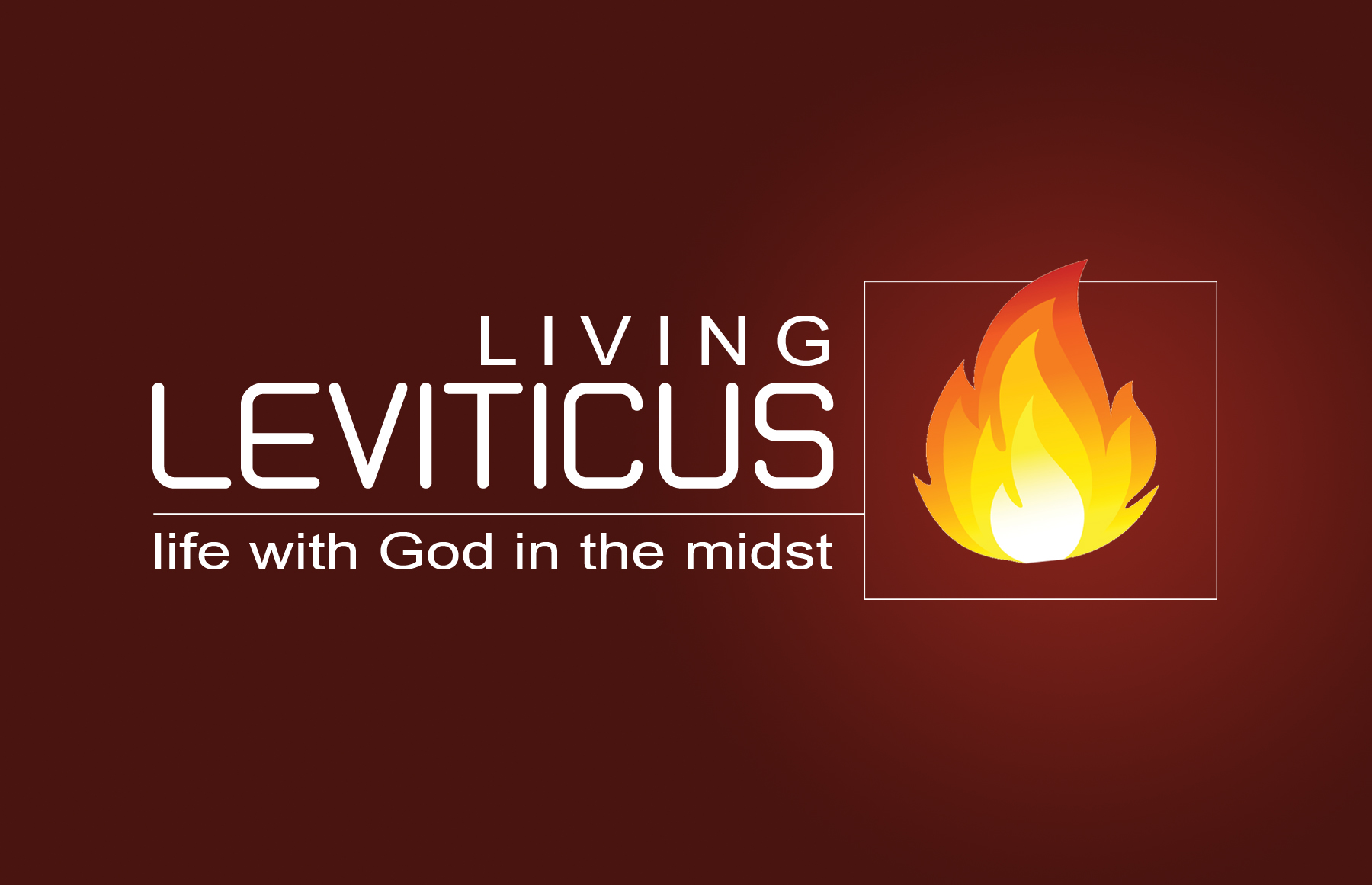
When God Dwells with You: A Life of Sacrifice
God dwells in the midst of his Church. Therefore Leviticus is extremely relevant for us, especially knowing that “whatever was written in former days was written for our instruction...”. So what can we as followers of Jesus learn about a life with God in the midst? Well, one answer to that question comes from the beginning of Leviticus. Specifically, the first three chapters reveal that a life with God in the midst should be a life of sacrifice.
Keep ReadingThe Eclipse's Ancient Lessons
Today, most are not frightened by an eclipse. But our scientific understanding has not made this cosmic event any less powerful. David's confession in Psalm 8 points us to two important lessons, any time we are awed by the sky above.
Keep ReadingHow to Belong to a Local Church
Churches should not be places of wounding; they should facilitate healing. They should be where the neglected, the voiceless, the broken-hearted, the crushed in spirit and the weary find love, kindness and the hope of Jesus Christ. When you find a people and a place like that, you yearn to belong.
Keep ReadingHow to Spot a Fake or 'Half' Gospel
Next time you are at a church or event where there is some kind of gospel presentation, be sure to listen carefully. A clear, biblical declaration of the gospel of grace is profitable for both the saved and the unsaved. But how can we be sure such a presentation is in fact biblical?
Keep ReadingThe Revolutionary Cross
...if we claim familiarity with the cross, the reality of what He did then must have a radical impact on who we are now. Good Friday should remind me not only of His death, but also the death to which He calls me.
Keep ReadingLessons from LeFou
But while some searching children and uncertain teens may find comfort in a character who is apparently questioning his sexuality, sadly, both the film and the general, cultural dialogue will never venture beyond the boundaries set by the 'new tolerance'. If they did, it might just expose the disturbing foundation that upholds the modern stance.
Keep ReadingGot Kids in Your Worship Service?
Kids in the worship service? Kids being kids in the worship service? What are we to do?
Keep ReadingFive Reasons the 2016 Presidential Election is Great for God's People
While cooler autumn weather begins to blanket our country, the political climate of the nation is still sizzling with confusion and conflict...But what if I were to tell you this polarizing and fever-pitched political atmosphere is not simply “good”, but is actually great for the Church.
Keep ReadingUnsearchable (Sorry, Google)
Not even Google or Bing could search out His understanding. Consider how Isaiah encourages us in our first memory verse of 2015-2016.
Keep ReadingThank You, Supreme Court
Thoughts on the recent ruling of the Supreme Court regarding same-sex marriage.
Keep ReadingRespect and Revolution
Thinking about whether or not there are limits when it comes to submitting to authorities.
Keep Reading-
- Current Issues22
- Following Christ6
- The Cross6
- The Gospel6
- Easter5
- Happy Ever After (Revelation)4
- Prayer4
- Evangelism4
- Fellowship/The Church4
- Interpreting Scripture4
- Event3
- Worldview3
- Faith3
- Walk in Truth3
- Suffering3
- Scripture Meditation2
- Worship2
- Serving Our Community2
- Advent/Christmas2
- The Local Church1
- Sex/Sexuality1
- Marriage1
- Four Essentials-Memory Verses1
- One Truth Workshop1
- Heaven & Hell1
- Men1
- Living Leviticus1
- Uncategorized1
- Holidays1
- Holy Week1
-
Apr 4
2024
Ancient Easter Encouragements
 As Ephesians 4:11-12 remind us, Christ has given to his church “the shepherds and teachers, to equip the saints for the work of ministry, for building up the body of Christ”. This has always been true, in each century of the Church's existence. We pray you're encouraged by three of these teachers, one from the 2nd century, and two from the 4th century, as they proclaim the power, purpose, hope, and wonder of Jesus' resurrection.
As Ephesians 4:11-12 remind us, Christ has given to his church “the shepherds and teachers, to equip the saints for the work of ministry, for building up the body of Christ”. This has always been true, in each century of the Church's existence. We pray you're encouraged by three of these teachers, one from the 2nd century, and two from the 4th century, as they proclaim the power, purpose, hope, and wonder of Jesus' resurrection.
 Paul makes two prayer requests in Romans 15:30-32. First, he asks these Christians in Rome to pray that he would "be delivered from the unbelievers in Judea" during his upcoming trip to Jerusalem. Second... that his "service for Jerusalem may be acceptable to the saints".
Paul makes two prayer requests in Romans 15:30-32. First, he asks these Christians in Rome to pray that he would "be delivered from the unbelievers in Judea" during his upcoming trip to Jerusalem. Second... that his "service for Jerusalem may be acceptable to the saints".
 Though positive examples abound throughout church history, over the centuries, Christians have also (and often) struggled with the biblical concept of "good works"... To understand these not-so-good pitfalls regarding "good works"... Consider three pitfalls related to Paul's teaching in Ephesians
Though positive examples abound throughout church history, over the centuries, Christians have also (and often) struggled with the biblical concept of "good works"... To understand these not-so-good pitfalls regarding "good works"... Consider three pitfalls related to Paul's teaching in Ephesians
Nov 22
2023
10 Helpful Verses on Giving Thanks
 While Thanksgiving may be (for most people--including most of us) an occasion for traveling, gathering, and eating, for God's people, the season is also a great opportunity for worship and as a reminder of the grateful posture we should have all year long.
While Thanksgiving may be (for most people--including most of us) an occasion for traveling, gathering, and eating, for God's people, the season is also a great opportunity for worship and as a reminder of the grateful posture we should have all year long.
Nov 7
2023
Is Israel Israel?
 As horrific and heartbreaking images flow from the Middle East, images of terrorism, war, and the profound human suffering of both Israelis and Palestinians, many within the Church have rightly been driven to prayer. But such difficult times also generate conversations among believers about the people and places involved in today's news headlines, and specifically how all of this is connected to God's word and work.
As horrific and heartbreaking images flow from the Middle East, images of terrorism, war, and the profound human suffering of both Israelis and Palestinians, many within the Church have rightly been driven to prayer. But such difficult times also generate conversations among believers about the people and places involved in today's news headlines, and specifically how all of this is connected to God's word and work.
 Some key quotes from Message #1 in our "The Work of Ministry" series, along with some helpful quotes from others on this foundational topic. We pray these are an encouragement to you!
Some key quotes from Message #1 in our "The Work of Ministry" series, along with some helpful quotes from others on this foundational topic. We pray these are an encouragement to you!
May 3
2023
Letter to a Jehovah's Witness Neighbor
 During the pandemic, I noticed that local Jehovah's Witnesses had begun sending outreach letters to local residents in lieu of door-to-door or public book stalls. Post-pandemic, this practice has continued. My household has received a number of these letters over the past three years. Maybe you have as well. A recent letter from a Witness neighbor gave me the chance to put down and send some thoughts
During the pandemic, I noticed that local Jehovah's Witnesses had begun sending outreach letters to local residents in lieu of door-to-door or public book stalls. Post-pandemic, this practice has continued. My household has received a number of these letters over the past three years. Maybe you have as well. A recent letter from a Witness neighbor gave me the chance to put down and send some thoughts
 The story in 1 Kings 3:16-28 of Solomon and the two mothers (in fact, "two prostitutes") has always bothered me. The reaction of the second mother in verse 26, her willingness to put the child to death and accept half his corpse, just seemed unbelievable.
The story in 1 Kings 3:16-28 of Solomon and the two mothers (in fact, "two prostitutes") has always bothered me. The reaction of the second mother in verse 26, her willingness to put the child to death and accept half his corpse, just seemed unbelievable.
Jan 26
2023
Why Your Faith in God is Not Enough
 Love alerts us to what is dangerous. And it's dangerous to believe that our belief has placed us on the inside with God, when in reality, we are on the outside, ignoring the only "door" (John 10:9) that can give us access into that wonderful place, forever.
Love alerts us to what is dangerous. And it's dangerous to believe that our belief has placed us on the inside with God, when in reality, we are on the outside, ignoring the only "door" (John 10:9) that can give us access into that wonderful place, forever.
Nov 6
2022
A Prayer for Election Day
 "Heavenly Father, as our nations think and talks about election day, we come to you as a pilgrim people; as "sojourners and exiles" (I Peter 2:11) in a world that is "passing away along with its desires" (I John 2:17)"
"Heavenly Father, as our nations think and talks about election day, we come to you as a pilgrim people; as "sojourners and exiles" (I Peter 2:11) in a world that is "passing away along with its desires" (I John 2:17)"
Oct 12
2022
Why Halloween is the Worst Holiday
 No, this is not a tirade. No, I will not be pointing a finger of condemnation at those who celebrate Halloween in one way or another. I simply want to offer some thoughts for you to chew on. Almost every year I talk with my children (one in particular) about why we don't celebrate Halloween. Our most recent conversation on this subject led me to write some of these thoughts down. Maybe they're helpful to you. Maybe they're not. I'll let you decide.
No, this is not a tirade. No, I will not be pointing a finger of condemnation at those who celebrate Halloween in one way or another. I simply want to offer some thoughts for you to chew on. Almost every year I talk with my children (one in particular) about why we don't celebrate Halloween. Our most recent conversation on this subject led me to write some of these thoughts down. Maybe they're helpful to you. Maybe they're not. I'll let you decide.
Oct 10
2022
Revisiting Eden
 “I think many who are unfamiliar with the Bible might find it surprising that only three chapters into the first book of the Old Testament, one of the characters is a talking snake. If you were helping a person like this make sense of the story we find in Genesis 3 (a person whose only experience with talking snakes was from a children's storybook or a Disney movie), how would you explain this unusual character?"
“I think many who are unfamiliar with the Bible might find it surprising that only three chapters into the first book of the Old Testament, one of the characters is a talking snake. If you were helping a person like this make sense of the story we find in Genesis 3 (a person whose only experience with talking snakes was from a children's storybook or a Disney movie), how would you explain this unusual character?"
Sep 28
2022
The Hardest Chapter in the Bible
 Some thoughts on the challenges of interpreting Revelation 20.
Some thoughts on the challenges of interpreting Revelation 20.
 "Drew, I understand that you believe Scripture teaches a true believer can fall away; that a person who is born again, a new creature in Christ, and a child of God, born of imperishable seed, can somehow reverse or lose all that. But I believe that idea is soundly refuted by God's word."
"Drew, I understand that you believe Scripture teaches a true believer can fall away; that a person who is born again, a new creature in Christ, and a child of God, born of imperishable seed, can somehow reverse or lose all that. But I believe that idea is soundly refuted by God's word."
 When Paul wrote “rejoice always” to the Thessalonian believers in 5:16 of his first letter to that young church, was this short command also meant to communicate the idea that there's no place for grief or discouragement or disappointment in the life of the believer? I don't believe so. Here's why.
When Paul wrote “rejoice always” to the Thessalonian believers in 5:16 of his first letter to that young church, was this short command also meant to communicate the idea that there's no place for grief or discouragement or disappointment in the life of the believer? I don't believe so. Here's why.
Jul 17
2022
10 Ways to Find Rest at the Cross
 In times of mental, emotional, relational, and spiritual exhaustion, we can, in light of God's word, find rest at the cross. Here are just some of the ideas revealed by Scripture about the cross of Jesus, ideas that should inspire comfort, peace, and encouragement. Consider how you might worship, give thanks, and pray in light of these ten truths...
In times of mental, emotional, relational, and spiritual exhaustion, we can, in light of God's word, find rest at the cross. Here are just some of the ideas revealed by Scripture about the cross of Jesus, ideas that should inspire comfort, peace, and encouragement. Consider how you might worship, give thanks, and pray in light of these ten truths...
Jul 7
2022
Re: Abortion
 As God graciously works among us to transform our minds and hearts (to renew us in light of the truth, that we would love what is good), I pray as you ponder them, these brief thoughts on the difficult topic of abortion would do that very thing:
As God graciously works among us to transform our minds and hearts (to renew us in light of the truth, that we would love what is good), I pray as you ponder them, these brief thoughts on the difficult topic of abortion would do that very thing:
Apr 25
2022
How His Resurrection Reframes Your Reality
 Jesus, who was crucified on a Friday two-thousand years ago, amazingly, rose again, rose to life on the following Sunday. This radical reality should, above everything else, reframe your reality. But has it? Does it? Strangely, many people today who accept Christ's resurrection as an historical reality don't seem to actually live in light of that reality.
Jesus, who was crucified on a Friday two-thousand years ago, amazingly, rose again, rose to life on the following Sunday. This radical reality should, above everything else, reframe your reality. But has it? Does it? Strangely, many people today who accept Christ's resurrection as an historical reality don't seem to actually live in light of that reality.
Mar 21
2022
Put Your Armor On
 What is the Apostle describing in Ephesians 6:10-17? He's describing life on the battlefield. Conflict. Forces of Evil. Putting on armor. This is the language of warfare, of a battle taking place in which the Ephesian Christians are involved. And if we believe their faith is our faith, if we believe this was and is God's word to his people, then we are on that same battlefield.
What is the Apostle describing in Ephesians 6:10-17? He's describing life on the battlefield. Conflict. Forces of Evil. Putting on armor. This is the language of warfare, of a battle taking place in which the Ephesian Christians are involved. And if we believe their faith is our faith, if we believe this was and is God's word to his people, then we are on that same battlefield.
 Will a genuine follower of Christ, one who has truly been “born again”, a person genuinely filled with the Holy Spirit, struggle with sin? The answer from the New Testament is an emphatic “yes”. And there are many passages that speak to this reality of the believer's struggle with sin. But though many want to offer these verses as evidence and use their language, Romans 7:14-25 isn't one of those passages.
Will a genuine follower of Christ, one who has truly been “born again”, a person genuinely filled with the Holy Spirit, struggle with sin? The answer from the New Testament is an emphatic “yes”. And there are many passages that speak to this reality of the believer's struggle with sin. But though many want to offer these verses as evidence and use their language, Romans 7:14-25 isn't one of those passages.
Feb 15
2022
Why That Homeless Man Probably Isn't Jesus
 Maybe you've heard this identification before: “Yes, when we were ministering to that homeless gentleman in front of the old firehouse, I knew we were ministering to Jesus himself, just like the Bible says.” Of course the individual in question could be any number of people in need: an incarcerated relative, a child in 'the system', a dying neighbor. But does the New Testament really teach that when we bless such people, we are actually blessing Jesus in disguise?
Maybe you've heard this identification before: “Yes, when we were ministering to that homeless gentleman in front of the old firehouse, I knew we were ministering to Jesus himself, just like the Bible says.” Of course the individual in question could be any number of people in need: an incarcerated relative, a child in 'the system', a dying neighbor. But does the New Testament really teach that when we bless such people, we are actually blessing Jesus in disguise?
Jan 6
2022
Visit Fantasyland, But Don't Stay
 ...When visiting the different, themed sections of Disneyland, Fantasyland is not typically high on my priority list. But even those who enjoy the Tea Cup ride or King Arthur's carousel know there's much more to the Disneyland experience. Think about it: who would pay full price for admission, but then simply cycle through just the ten or eleven rides in Fantasyland? No one. But God's word warns us that, too often, we're the kind of people who do something very similar when it comes to everyday life: we regularly choose to pitch our tent in a land of fantasy rather than reality.
...When visiting the different, themed sections of Disneyland, Fantasyland is not typically high on my priority list. But even those who enjoy the Tea Cup ride or King Arthur's carousel know there's much more to the Disneyland experience. Think about it: who would pay full price for admission, but then simply cycle through just the ten or eleven rides in Fantasyland? No one. But God's word warns us that, too often, we're the kind of people who do something very similar when it comes to everyday life: we regularly choose to pitch our tent in a land of fantasy rather than reality.
Dec 16
2021
7 'Christmas Story' Fallacies
 The fallacies I have in mind are ones that have been circulated over the centuries by what some call popular or folk Christianity. Undoubtedly, these kinds of 'Christian' beliefs can be found in all sorts of categories, not just the one labeled 'Christmas'. But these Christmas fallacies are some of the best known, since they are promoted annually through things like nativity scenes/sets, television and movies, and even Christmas carols.
The fallacies I have in mind are ones that have been circulated over the centuries by what some call popular or folk Christianity. Undoubtedly, these kinds of 'Christian' beliefs can be found in all sorts of categories, not just the one labeled 'Christmas'. But these Christmas fallacies are some of the best known, since they are promoted annually through things like nativity scenes/sets, television and movies, and even Christmas carols.
Nov 3
2021
But What About Forgiving Myself? (Part 2)
 In light of the moral universe revealed by the Scriptures, I suggested modern ideas regarding 'self-forgiveness' make very little sense. But this doesn't mean there are not areas of overlap between biblical concerns and modern, therapeutic concerns. Care for hurting individuals is the common goal. So where are the points of connection, and how does God's word address modern concerns?
In light of the moral universe revealed by the Scriptures, I suggested modern ideas regarding 'self-forgiveness' make very little sense. But this doesn't mean there are not areas of overlap between biblical concerns and modern, therapeutic concerns. Care for hurting individuals is the common goal. So where are the points of connection, and how does God's word address modern concerns?
Oct 27
2021
But What About Forgiving Myself?
 Have you ever heard someone say, “I just can't forgive myself”? If you're a follower of Jesus, than this struggle should stir our hearts to help. But as I think many would agree, we must help in light of God's word. Here's the challenge: while it's a well-known concept in both counseling contexts and popular culture, attentive readers of Scripture know that 'self-forgiveness' is not an explicit concept in the Bible.
Have you ever heard someone say, “I just can't forgive myself”? If you're a follower of Jesus, than this struggle should stir our hearts to help. But as I think many would agree, we must help in light of God's word. Here's the challenge: while it's a well-known concept in both counseling contexts and popular culture, attentive readers of Scripture know that 'self-forgiveness' is not an explicit concept in the Bible.
Sep 16
2021
Christians and Yom Kippur
 While Christians are not called to keep the day, Yom Kippur can serve as a powerful reminder that this yearly ritual was only a picture of the perfect sacrifice God would provide and did provide through Jesus (cf. Isaiah 53:10).
While Christians are not called to keep the day, Yom Kippur can serve as a powerful reminder that this yearly ritual was only a picture of the perfect sacrifice God would provide and did provide through Jesus (cf. Isaiah 53:10).
Sep 9
2021
3 Spiritual Lessons from 9/11
 As we mark the twentieth anniversary of the 9/11 attacks, many people will undoubtedly be reflecting on the significance of what happened two decades ago and how it should shape our outlook today. While historians, security analysts, and those who focus on foreign affairs have had and will have a lot to discuss, it's just as important to reflect on the spiritual significance of those tragic events.
As we mark the twentieth anniversary of the 9/11 attacks, many people will undoubtedly be reflecting on the significance of what happened two decades ago and how it should shape our outlook today. While historians, security analysts, and those who focus on foreign affairs have had and will have a lot to discuss, it's just as important to reflect on the spiritual significance of those tragic events.
Sep 1
2021
The Dangers of a 'Headlines' Faith
 Current events and culture wars can easily push faith concerns to the side. But equally dangerous is when the media's “what matters most” begins to shape our faith instead of sidelining it.
Current events and culture wars can easily push faith concerns to the side. But equally dangerous is when the media's “what matters most” begins to shape our faith instead of sidelining it.
Aug 24
2021
Is Genesis 3:15 Really Talking about Jesus?
 It's often called the 'protoevangelium'. That's a Greek word that simply means “first gospel”. What is this 'first gospel'? It's an interpretation of Genesis 3:15 that argues this verse is ultimately speaking of Jesus and his victory over death and Satan. But is that actually what the verse is saying?
It's often called the 'protoevangelium'. That's a Greek word that simply means “first gospel”. What is this 'first gospel'? It's an interpretation of Genesis 3:15 that argues this verse is ultimately speaking of Jesus and his victory over death and Satan. But is that actually what the verse is saying?
Aug 11
2021
Our Relaunch Prayer Guide
 Pray with us in the coming weeks in light of our relaunch on October 3! Each week includes a biblical theme and related Scriptures around which we hope you will pray.
Pray with us in the coming weeks in light of our relaunch on October 3! Each week includes a biblical theme and related Scriptures around which we hope you will pray.
 When we consider what the Bible tells us about hell, it is undoubtedly awful. But is it absurd? Is the idea of hell unreasonable? Some people believe so. But hell is clearly taught in Scripture. In fact, Jesus spoke about it more than anyone else. So what can we do? What should we do with this Christian concept of hell in a 'hell no' society?
When we consider what the Bible tells us about hell, it is undoubtedly awful. But is it absurd? Is the idea of hell unreasonable? Some people believe so. But hell is clearly taught in Scripture. In fact, Jesus spoke about it more than anyone else. So what can we do? What should we do with this Christian concept of hell in a 'hell no' society?
Jun 24
2021
Resurrection Reassurance
 Are you experiencing the “much more” of Christ's resurrected life? Specifically, are you reassured by His resurrection that God's purpose, God's plan for your life is alive and well because Jesus is alive and well?
Are you experiencing the “much more” of Christ's resurrected life? Specifically, are you reassured by His resurrection that God's purpose, God's plan for your life is alive and well because Jesus is alive and well?
Jun 24
2021
She "Left Her Water Jar"
 Based on what he included in his account, it seems reasonable to conclude that John provided this simple note about the woman leaving her water jar because that minuscule detail said so much about the massive work God had done (and was doing) in her heart. In the same way, I believe God has seen fit to preserve this detail for our encouragement
Based on what he included in his account, it seems reasonable to conclude that John provided this simple note about the woman leaving her water jar because that minuscule detail said so much about the massive work God had done (and was doing) in her heart. In the same way, I believe God has seen fit to preserve this detail for our encouragement
 While a show like this may be a good introduction to Jesus for someone who knows very little about him, why should followers of Christ watch a show that unabashedly goes beyond what Scripture itself reveals about the earthly ministry of Jesus and those who followed him? Let me offer a few reasons.
While a show like this may be a good introduction to Jesus for someone who knows very little about him, why should followers of Christ watch a show that unabashedly goes beyond what Scripture itself reveals about the earthly ministry of Jesus and those who followed him? Let me offer a few reasons.
Mar 24
2021
"The Glory of the Cross" (Book)
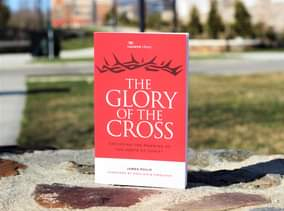 Join us this Holy Week as we read through this short but sweet book, "The Glory of the Cross"
Join us this Holy Week as we read through this short but sweet book, "The Glory of the Cross"
 If [ancient church] directories did exist, and were made available to every believer in each local church, what might the apostles say in their letters about this kind of resource? As those who have just received a newly updated copy of our own church directory, this question is certainly relevant.
If [ancient church] directories did exist, and were made available to every believer in each local church, what might the apostles say in their letters about this kind of resource? As those who have just received a newly updated copy of our own church directory, this question is certainly relevant.
Jan 28
2021
Who is the Object of Your Faith?
 The 'faith emphasis' (or focus) of the New Testament doesn't direct us away from the God of the Old Testament. It fulfills it. But in doing so, it confirms that Jesus must be God, for only God is worthy of being the object of our saving and sanctifying faith.
The 'faith emphasis' (or focus) of the New Testament doesn't direct us away from the God of the Old Testament. It fulfills it. But in doing so, it confirms that Jesus must be God, for only God is worthy of being the object of our saving and sanctifying faith.
Nov 30
2020
Our Advent Devotional
 I'm excited to begin an Advent journey with you using Pastor John Piper's book, "Joy to the World: Daily Readings for Advent"
I'm excited to begin an Advent journey with you using Pastor John Piper's book, "Joy to the World: Daily Readings for Advent"
Nov 25
2020
Now Thank We All Our God
 How could Thanksgiving be the same in a year when almost everything else has been 'out of sorts'? Sadly, it won't be. But while many will understandably miss the familiar holiday habits and hugs, the troubling issues of 2020 cannot change the word that God has issued about giving thanks: "...give thanks in all circumstances; for this is the will of God in Christ Jesus for you." (I Thessalonians 5:18)
How could Thanksgiving be the same in a year when almost everything else has been 'out of sorts'? Sadly, it won't be. But while many will understandably miss the familiar holiday habits and hugs, the troubling issues of 2020 cannot change the word that God has issued about giving thanks: "...give thanks in all circumstances; for this is the will of God in Christ Jesus for you." (I Thessalonians 5:18)
 Did you know Proverbs includes around fifty verses that mention (or are part of a passage that mentions) either a “king”, “ruler”, “prince”, or “noble”, or that speak to a royal context or function? If we desire healthy and effective leadership in our lives, prayer is one powerful way to genuinely make a difference. To that end, here are seven Proverbs-inspired prayers for our leaders.
Did you know Proverbs includes around fifty verses that mention (or are part of a passage that mentions) either a “king”, “ruler”, “prince”, or “noble”, or that speak to a royal context or function? If we desire healthy and effective leadership in our lives, prayer is one powerful way to genuinely make a difference. To that end, here are seven Proverbs-inspired prayers for our leaders.
Nov 9
2020
Proverbs on "Kings" and "Rulers"
A list of around fifty verses from the book of Proverbs that mention (or are part of a passage that mentions) human leaders like "kings", "ruler", "princes", and "nobles". Consider what these reveal about God's wisdom and design for human leadership.
Oct 29
2020
Take Your Temperature
 Every Christian is a disciple of Jesus. But that doesn't necessarily mean every Christian is walking in spiritual healthiness as a disciple... In light of [the reality of spiritual] unhealthiness, it is vitally important for every follower of Christ to take his or her spiritual 'temperature'.
Every Christian is a disciple of Jesus. But that doesn't necessarily mean every Christian is walking in spiritual healthiness as a disciple... In light of [the reality of spiritual] unhealthiness, it is vitally important for every follower of Christ to take his or her spiritual 'temperature'.
Oct 22
2020
Christmas 2020-Away Teams E-Service Project
 Looking for a simple way to bless others this Christmas... even if they live thousands of miles away? Here's your chance. We want to send an expanded Christmas 'e-card' to all of the individuals around whom our Away Teams have been formed.
Looking for a simple way to bless others this Christmas... even if they live thousands of miles away? Here's your chance. We want to send an expanded Christmas 'e-card' to all of the individuals around whom our Away Teams have been formed.
Sep 22
2020
Who are You Voting for in November?
 Contrary to what you might be hearing (even from some respected, Christian leaders), who you vote for in the upcoming presidential election is not a biblical mark of genuine, saving faith, nor is it inherently an unrighteous act if you vote for the so-called 'wrong' candidate (whoever that is in your context).
Contrary to what you might be hearing (even from some respected, Christian leaders), who you vote for in the upcoming presidential election is not a biblical mark of genuine, saving faith, nor is it inherently an unrighteous act if you vote for the so-called 'wrong' candidate (whoever that is in your context).
Aug 5
2020
The Coronavirus Corrective
 When we hold on firmly to the biblical definition of church, public health measures may force us to revise our plans, but they simply cannot restrict the church from being the church. Throughout history, and throughout the world, even today, the Church has always been flexible enough to adjust the form of its life together, without veering from the function of its life together.
When we hold on firmly to the biblical definition of church, public health measures may force us to revise our plans, but they simply cannot restrict the church from being the church. Throughout history, and throughout the world, even today, the Church has always been flexible enough to adjust the form of its life together, without veering from the function of its life together.
Aug 5
2020
Building 2020
 When we read often-neglected stories like this, we're reminded that it's very easy to slip into a mentality of, “Jesus? Oh yeah, I know Jesus. I know all about Jesus.” But God is so good to unsettle us in terms of the often unsettling truth about the real Jesus.
When we read often-neglected stories like this, we're reminded that it's very easy to slip into a mentality of, “Jesus? Oh yeah, I know Jesus. I know all about Jesus.” But God is so good to unsettle us in terms of the often unsettling truth about the real Jesus.
Jul 6
2020
Hamilton's Little-Known Ending
 Faithful fans of Hamilton will certainly know how the play ends. But few people know how the final hours of Alexander Hamilton's life actually 'played out'... yes, “in the room where it happened”.
Faithful fans of Hamilton will certainly know how the play ends. But few people know how the final hours of Alexander Hamilton's life actually 'played out'... yes, “in the room where it happened”.
Jun 24
2020
What God Says About Diversity
 Having just finished another study in the deeply meaningful, but often misunderstood, book of the Revelation, I couldn't help but reflect on how John's vision in chapter 7 speaks to our current, culture-wide conversation about race and inequality.
Having just finished another study in the deeply meaningful, but often misunderstood, book of the Revelation, I couldn't help but reflect on how John's vision in chapter 7 speaks to our current, culture-wide conversation about race and inequality.
Jun 4
2020
Fighting for Fellowship
 Social influences, insecurities, selfishness, and many other factors can keep us from the faith-shaped relationships we read about in Scripture. Currently, it is the unexpected reality of a global pandemic that has not only distanced us socially, but also tempted many of us to fizzle rather than fight when it comes to fellowship. But why?
Social influences, insecurities, selfishness, and many other factors can keep us from the faith-shaped relationships we read about in Scripture. Currently, it is the unexpected reality of a global pandemic that has not only distanced us socially, but also tempted many of us to fizzle rather than fight when it comes to fellowship. But why?
May 27
2020
100.4.15
 From now until the end of the month, you can, amazingly, provide over 100 meals for a person in need in our community for just $15! We are pleased to partner with All Faith Community Services in Buckeye to bless so many who are struggling in light of the current crisis.
From now until the end of the month, you can, amazingly, provide over 100 meals for a person in need in our community for just $15! We are pleased to partner with All Faith Community Services in Buckeye to bless so many who are struggling in light of the current crisis.
May 13
2020
"Cases of Urgent Need"
Apr 22
2020
Where is God in the Best and Worst of Times?
 Behind that question is one that's been asked for millennia. It's often referred to as 'the problem of evil'. Why does God's plan include the rescue of some and not others, the severe suffering of some and not others? Frankly, there are no easy answers to such questions. But the assumptions behind our questions can be helpful. Your piece assumed the value of all human life. You touched on the importance of gratitude, and the unwelcomeness of pain and suffering. In short, you, like most, assumed an 'ought'.
Behind that question is one that's been asked for millennia. It's often referred to as 'the problem of evil'. Why does God's plan include the rescue of some and not others, the severe suffering of some and not others? Frankly, there are no easy answers to such questions. But the assumptions behind our questions can be helpful. Your piece assumed the value of all human life. You touched on the importance of gratitude, and the unwelcomeness of pain and suffering. In short, you, like most, assumed an 'ought'.
Apr 14
2020
Easter Every Day
 Resurrection apart from death is not resurrection. It is reconfiguration. It is reinterpretation. It is renovation and remodeling. But it isn't resurrection.
Resurrection apart from death is not resurrection. It is reconfiguration. It is reinterpretation. It is renovation and remodeling. But it isn't resurrection.
 Many people today are looking for answers. Pandemics, like most crises, have a way of driving us in that direction. But many seem hungry for more than just health advice, social guidelines, and up-to-date statistics... I would offer up that these people are looking for what we might call spiritual answers. That collection of ancient scriptures we call the Bible is (and for thousands of years has been) widely recognized as a place to find spiritual answers.
Many people today are looking for answers. Pandemics, like most crises, have a way of driving us in that direction. But many seem hungry for more than just health advice, social guidelines, and up-to-date statistics... I would offer up that these people are looking for what we might call spiritual answers. That collection of ancient scriptures we call the Bible is (and for thousands of years has been) widely recognized as a place to find spiritual answers.
Mar 26
2020
Salvation Thru Sickness, Not From It
 At a time when sickness is on the minds of so many, the 'benefits package' offered by the often-termed 'prosperity gospel' might seem especially appealing. What is the prosperity gospel? It's the belief (popular in many Charismatic and Pentecostal circles) that Jesus came, not simply to save you from sin and self, but from disease and debt as well... But is this really what the Scriptures teach? Is this prosperity gospel the genuine gospel of the New Testament?
At a time when sickness is on the minds of so many, the 'benefits package' offered by the often-termed 'prosperity gospel' might seem especially appealing. What is the prosperity gospel? It's the belief (popular in many Charismatic and Pentecostal circles) that Jesus came, not simply to save you from sin and self, but from disease and debt as well... But is this really what the Scriptures teach? Is this prosperity gospel the genuine gospel of the New Testament?
Mar 16
2020
Manly Monday Meditations
Dec 3
2019
Christmas in the Park
 We're excited for the opportunity to bring a Christmas blessing to the community on Monday evening, December 23rd at Sundance Park. Our hope for this "Christmas in the Park" event is to host a kind of informal Christmas Eve service, under the stars from 6:30pm to 8:00pm. But to pull this off WE NEED YOUR HELP!
We're excited for the opportunity to bring a Christmas blessing to the community on Monday evening, December 23rd at Sundance Park. Our hope for this "Christmas in the Park" event is to host a kind of informal Christmas Eve service, under the stars from 6:30pm to 8:00pm. But to pull this off WE NEED YOUR HELP!
Nov 6
2019
How Great Pain Can Point Us to a Great God
 For many, painful circumstances drive us toward one of three, general stress responses: fight, flight, or freeze...But what if we added “faith” to that list? It was C.S. Lewis...who said: “Pain insists upon being attended to. God whispers to us in our pleasures, speaks in our consciences, but shouts in our pains. It is his megaphone to rouse a deaf world.”
For many, painful circumstances drive us toward one of three, general stress responses: fight, flight, or freeze...But what if we added “faith” to that list? It was C.S. Lewis...who said: “Pain insists upon being attended to. God whispers to us in our pleasures, speaks in our consciences, but shouts in our pains. It is his megaphone to rouse a deaf world.”
Aug 21
2019
Six Steps to Talking About Jesus
Join us for a new six-week study on the how and why of sharing Jesus with others.
Jun 4
2019
Flapjack Fundraiser Helpers!
May 8
2019
The STORY of LIFE Workshop
 Ever wanted the "big picture" of the Bible? Eager to know the whole story of Scripture, and how all the pieces fit together? Join us for "The Story of Life" workshop.
Ever wanted the "big picture" of the Bible? Eager to know the whole story of Scripture, and how all the pieces fit together? Join us for "The Story of Life" workshop.
May 6
2019
Youth Field Trip: Urban Air!
Apr 10
2019
You May Be Wrong About the Lord's Prayer
 How exactly should we use the Lord's Prayer? In some traditions, consistent repetition of the exact words of this prayer seems to be done in a mechanical way, as if the prayer were some kind of 'magical mantra'. Others have emphasized the idea that this prayer is not a mantra, but a model, intended to shape the broad contours of all our prayers. So which is it?
How exactly should we use the Lord's Prayer? In some traditions, consistent repetition of the exact words of this prayer seems to be done in a mechanical way, as if the prayer were some kind of 'magical mantra'. Others have emphasized the idea that this prayer is not a mantra, but a model, intended to shape the broad contours of all our prayers. So which is it?
Mar 19
2019
Youth Rummage Sale 2019--Volunteers!
 Youth and Youth Parents! Take a look at the volunteer needs/time slots for our Rummage Sale Fundraiser and let us know how you can help....
Youth and Youth Parents! Take a look at the volunteer needs/time slots for our Rummage Sale Fundraiser and let us know how you can help....
 Like the operator of a nuclear power station, effectively handling the power of your digital device requires careful consideration and consistent discipline. Without this mindset, experiencing a relational or emotional or mental or spiritual 'meltdown' is a very real possibility.
Like the operator of a nuclear power station, effectively handling the power of your digital device requires careful consideration and consistent discipline. Without this mindset, experiencing a relational or emotional or mental or spiritual 'meltdown' is a very real possibility.
Feb 13
2019
From Valentine's Day to Good Friday
 While colorful hearts and cartoonish cupids are common images around Valentine's Day, the cross was the image the Apostle Paul wanted his reader to be informed and inspired by above all others. As Paul wrote in the opening verses of Ephesians 5, God has called us to “walk in love, as Christ loved us and gave himself up for us”
While colorful hearts and cartoonish cupids are common images around Valentine's Day, the cross was the image the Apostle Paul wanted his reader to be informed and inspired by above all others. As Paul wrote in the opening verses of Ephesians 5, God has called us to “walk in love, as Christ loved us and gave himself up for us”
Nov 21
2018
Some FAQs Regarding Divorce
 Divorce is a hard subject. As I mentioned in a recent message, there's hardly anyone these days who has not been touched in some way by the shadow of divorce. Even when it feels like liberation or relief to a weary spouse, it remains a painful loss for both the individuals involved and those around them.
Divorce is a hard subject. As I mentioned in a recent message, there's hardly anyone these days who has not been touched in some way by the shadow of divorce. Even when it feels like liberation or relief to a weary spouse, it remains a painful loss for both the individuals involved and those around them.
Nov 14
2018
4 Ways Lust Hurts You and Yours
 So many people today believe it's perfectly normal to make room in your life for lust. They think, “As long as I'm not hurting anyone, what's the big deal... ?” Such people might be surprised to learn there are many ways sexual lust harms you and those around you.
So many people today believe it's perfectly normal to make room in your life for lust. They think, “As long as I'm not hurting anyone, what's the big deal... ?” Such people might be surprised to learn there are many ways sexual lust harms you and those around you.
 ...I'd like to do more than just encourage you to vote. If you are a Christian, I'd like to encourage you to vote as an independent. No, I'm not talking about your party affiliation. But I am thinking about the idea of party affiliation.
...I'd like to do more than just encourage you to vote. If you are a Christian, I'd like to encourage you to vote as an independent. No, I'm not talking about your party affiliation. But I am thinking about the idea of party affiliation.
Oct 24
2018
Our Need for Neediness
 Needy. Do any of us want to be needy? Do any of us want to be thought of as needy? If you are needy in our society, does it, from the culture's perspective, make you a hero or a 'zero'?
Needy. Do any of us want to be needy? Do any of us want to be thought of as needy? If you are needy in our society, does it, from the culture's perspective, make you a hero or a 'zero'?
Oct 11
2018
The Forgotten Fundamental: Fearing God
 Quick question: What's your favorite praise song or hymn about fearing God? Struggling to come up with examples? You wouldn't be alone. Compared to songs about loving God or worshiping God, songs about fearing God are few and far between. And there's a good chance that poverty is also reflected in our prayers and preaching as well.
Quick question: What's your favorite praise song or hymn about fearing God? Struggling to come up with examples? You wouldn't be alone. Compared to songs about loving God or worshiping God, songs about fearing God are few and far between. And there's a good chance that poverty is also reflected in our prayers and preaching as well.
 When a biblical passage appears to be at odds with the current scientific consensus, the problem may be that we simply have further to go in understanding the true meaning of the text...But in other cases...the issue is not the limitations of our biblical knowledge, but rather, the limitations of scientific knowledge.
When a biblical passage appears to be at odds with the current scientific consensus, the problem may be that we simply have further to go in understanding the true meaning of the text...But in other cases...the issue is not the limitations of our biblical knowledge, but rather, the limitations of scientific knowledge.
May 7
2018
Blue Letter Bible Workshop
 A free Blue Letter Bible workshop on May 19th. Sign-up today!
A free Blue Letter Bible workshop on May 19th. Sign-up today!
Apr 25
2018
Hell and the Wrath of God
 Even though we struggle with ideas of judgment and hell, they are important expressions of God's own nature.
Even though we struggle with ideas of judgment and hell, they are important expressions of God's own nature.
Feb 7
2018
Super Bowls Ads, MLK, and True Greatness
 Funny how God works. He can even use the misguided pairing of Dodge and Dr. King, on a Super Bowl Sunday, to point us back to true greatness and the One who makes it possible.
Funny how God works. He can even use the misguided pairing of Dodge and Dr. King, on a Super Bowl Sunday, to point us back to true greatness and the One who makes it possible.
Jan 17
2018
What a Dinosaur Can Teach Us about Real Love
 I Corinthians 13:4-7 is not necessarily a definition of love. Rather, it is a description of love, a description that challenges anyone who simply says “I'm loving,” or “I love you”. It tests the talk in light of the walk. And one of the ways it describes love is, "Love bears all things". But what exactly does that mean, and how can a dinosaur help us understand God's word here?
I Corinthians 13:4-7 is not necessarily a definition of love. Rather, it is a description of love, a description that challenges anyone who simply says “I'm loving,” or “I love you”. It tests the talk in light of the walk. And one of the ways it describes love is, "Love bears all things". But what exactly does that mean, and how can a dinosaur help us understand God's word here?
Oct 25
2017
The Other "In Christ Alone"
 For many, the phrase "in Christ alone" reminds them of the beautiful song by Stuart Townend and Keith Getty (from 2002)(opening line: "In Christ alone, my hope is found; He is my light, my strength, my song.). But there is an older song by the same name (from 1991), one that many may still remember.
For many, the phrase "in Christ alone" reminds them of the beautiful song by Stuart Townend and Keith Getty (from 2002)(opening line: "In Christ alone, my hope is found; He is my light, my strength, my song.). But there is an older song by the same name (from 1991), one that many may still remember.
Oct 11
2017
Walking by Saving Faith
 What is striking about Paul's argument in Romans 4 is not simply the idea of being justified (right with God as one declared innocent) by faith, but that Paul goes on to describe the hope-inspiring, endurance-producing nature of this saving faith; the fact we can “grow strong” (4:20) in faith, no matter what is happening to us or around us.
What is striking about Paul's argument in Romans 4 is not simply the idea of being justified (right with God as one declared innocent) by faith, but that Paul goes on to describe the hope-inspiring, endurance-producing nature of this saving faith; the fact we can “grow strong” (4:20) in faith, no matter what is happening to us or around us.
Oct 4
2017
Leaving Las Vegas
 Each and every day, all of us have been and will be leaving Las Vegas. We will leave the news coverage behind and head back into our daily routines and everyday commitments. But how will this tragedy change us? Beyond the grief and confusion and anger, what are we taking away from this awful event? What should we take away?
Each and every day, all of us have been and will be leaving Las Vegas. We will leave the news coverage behind and head back into our daily routines and everyday commitments. But how will this tragedy change us? Beyond the grief and confusion and anger, what are we taking away from this awful event? What should we take away?
 God dwells in the midst of his Church. Therefore Leviticus is extremely relevant for us, especially knowing that “whatever was written in former days was written for our instruction...”. So what can we as followers of Jesus learn about a life with God in the midst? Well, one answer to that question comes from the beginning of Leviticus. Specifically, the first three chapters reveal that a life with God in the midst should be a life of sacrifice.
God dwells in the midst of his Church. Therefore Leviticus is extremely relevant for us, especially knowing that “whatever was written in former days was written for our instruction...”. So what can we as followers of Jesus learn about a life with God in the midst? Well, one answer to that question comes from the beginning of Leviticus. Specifically, the first three chapters reveal that a life with God in the midst should be a life of sacrifice.
Aug 22
2017
The Eclipse's Ancient Lessons
Today, most are not frightened by an eclipse. But our scientific understanding has not made this cosmic event any less powerful. David's confession in Psalm 8 points us to two important lessons, any time we are awed by the sky above.
Jun 8
2017
How to Spot a Fake or 'Half' Gospel
Next time you are at a church or event where there is some kind of gospel presentation, be sure to listen carefully. A clear, biblical declaration of the gospel of grace is profitable for both the saved and the unsaved. But how can we be sure such a presentation is in fact biblical?
Apr 12
2017
The Revolutionary Cross
...if we claim familiarity with the cross, the reality of what He did then must have a radical impact on who we are now. Good Friday should remind me not only of His death, but also the death to which He calls me.
Mar 27
2017
Now for Then
In light of God's command through Peter in I Peter 3:15, what would you say to someone who asked you about your hope in Jesus Christ? Are you prepared?
Mar 20
2017
Lessons from LeFou
But while some searching children and uncertain teens may find comfort in a character who is apparently questioning his sexuality, sadly, both the film and the general, cultural dialogue will never venture beyond the boundaries set by the 'new tolerance'. If they did, it might just expose the disturbing foundation that upholds the modern stance.
Feb 8
2017
Got Kids in Your Worship Service?
Kids in the worship service? Kids being kids in the worship service? What are we to do?
Nov 2
2016
Your Faith, Your Vote
Every voter is a 'faith-based' voter. But if you are follower of Jesus, then the worldview that informs your vote should first be informed by God. That means the clear picture of reality painted by the words of Scripture should always be our first reference point when it comes to the candidates and issues for which we vote.
While cooler autumn weather begins to blanket our country, the political climate of the nation is still sizzling with confusion and conflict...But what if I were to tell you this polarizing and fever-pitched political atmosphere is not simply “good”, but is actually great for the Church.
Sep 21
2015
The Power of Life and Death
The death of the prophet Ezekiel's wife is a shocking episode. Could God be to blame?
Sep 9
2015
Unsearchable (Sorry, Google)
Not even Google or Bing could search out His understanding. Consider how Isaiah encourages us in our first memory verse of 2015-2016.
Jun 29
2015
Thank You, Supreme Court
Thoughts on the recent ruling of the Supreme Court regarding same-sex marriage.
May 13
2015
The Deceiver and Accuser
Remembering the reality of Satan's frustration and fury.
Apr 23
2015
Take this Job and [Love] It?
Considering how a life perspective shaped by the Bible affects how we see our job.
Apr 23
2015
Respect and Revolution
Thinking about whether or not there are limits when it comes to submitting to authorities.
Are there good historical reasons to believe Jesus really rose from the dead?
Apr 1
2015
The Two Witnesses of Revelation 11
Tackling the interpretive challenges of Revelation 11:1-14

